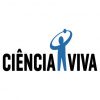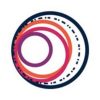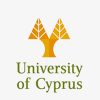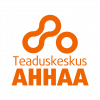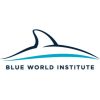The scope
While the world is undergoing deep transformation, formal education is still using 19th century approaches to learning. This calls for new forms of education to foster the competencies that societies and economies need, today and tomorrow. New emphasis must be placed on connecting innovation and science education strategies to societal needs and global developments. Therefore, education systems are called to go beyond teaching subjects to new approaches of learning. Schools need to re-invent themselves and this is by no means an easy process.
The vision
The Schools As Living Labs project proposes a new framework based on open innovation methods for schools across Europe to approach their science education programmes in a new light. Our objective is to make STEM teaching more relevant, systemic, and inclusive and to do that for all of our students.
SALL adopts the concept of open schooling in science education where schools, become agents of community well-being by creating new partnerships with other local actors and addressing local issues relevant to them.
SALL proposes to transform schools into living labs. This open-innovation methodology puts people in charge of the innovation process. It involves different kinds of partners in a private-public-people partnership and integrates research and innovation processes in real-life communities and settings. This methodology has been widely tested and has proved to be capable of nurturing meaningful collaborations between actors with diverging interests but with common objectives. Together, they build new products, new services, new uses, etc. through a cycle that typically comprises: Co-creation, Exploration, Experimentation, Evaluation phases.
SALL brings together school communities, including teachers, students, and their families, research institutions, policy-makers, science engagement organisation and other non-formal learning and open innovation spaces. School communities will be engaged in intensive dialogue and mutual learning activities. They will address local issues linked to the food system in all its dimensions, a very topical challenge faced by humankind as well as a relevant topic for science education that is high in the European political agenda.
THE approach
Schools As Living Labs, coordinated by Ellinogermaniki Agogi, roots its approach in existing open-schooling methodologies, such as OSOS, and other Living Lab initiatives. The project will create a living-lab-based methodology and develop training and support materials. The methodology and the materials will be tested and evaluated in 42 pilot school communities across 10 countries. The project will then carry out a larger-scale implementation of the living-lab-based methodology involving additional 370 schools, reaching 412 school communities in 10 countries.
Through SALL’s research-practice approach, the methodology will be adapted and new tools will be created and tested to support school communities in designing and implementing living lab activities. SALL will also prepare the ground for sustainable living-lab-based open schooling activities in Europe’s schools through strong community-building, networking, dissemination, as well as policy-oriented interventions.
From this, the gap between schools, the research community, and society will be bridged, assisting students to develop 21st-century skills and to raise their awareness of science and innovation.

